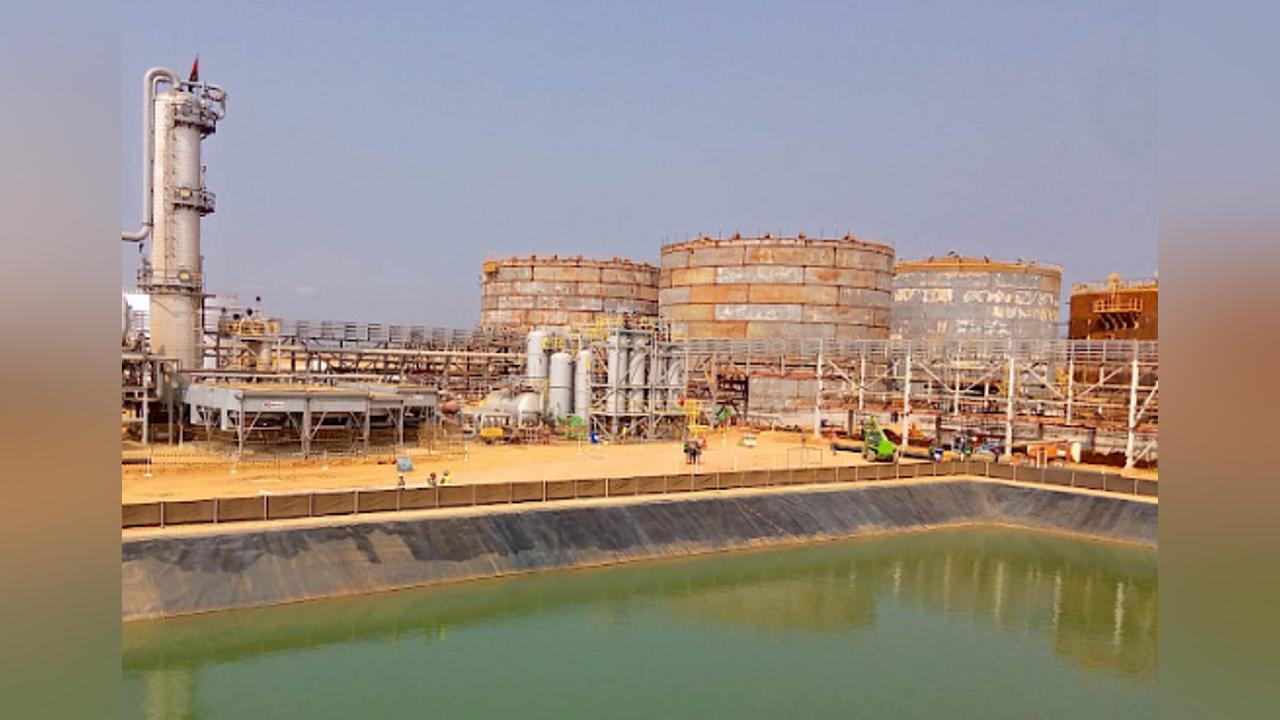Africa-Press – Angola. The opening of the Cabinda Petroleum Refinery, to take place on September 1 this year, marks the conclusion of the construction of the first phase of this manufacturing unit and the start of the commissioning process, which precedes commercial production, initially projected at 30,000 barrels per day.
According to a press release that to this Saturday, the production and sale of fuels, such as diesel, aviation kerosene (petroleum) (Jet A1), heavy fuel oil and naphtha, will begin within approximately three months.
According to the document, the 30,000 barrels per day the refinery will produce in the first phase represent a relevant slice, contributing to significantly reduce the importation of refined products.
Until full operation, processing tests will be conducted for approximately three months until the required quality standards for commercialization are met.
The refinery’s first phase was budgeted at US$473 million, with US$38 million provided by partners and US$335 million in syndicated financing.
With a capacity to process 60,000 barrels per day in successive phases, gasoline production is scheduled for a later phase of the project, a process currently under preparation.
According to the statement, the reduction in imports will be recorded immediately after the start of commercial production, with a progressive impact as the refinery reaches full capacity. This will allow the state to reduce its dependence on imports, reduce its foreign exchange bill, and increase energy security.
The priority is to ensure domestic supply, with any surpluses exported, generating additional revenue for the country.
The first phase had the financial support of an international banks consortium, including AFC, Afreximbank, Badea, IDC and BFA. These and other partners are also expected to maintain support for the next phase.
During the construction, more than three thousand and 300 jobs were created largely by Angolans.
In the component training of workers, 14 million hours/men were held and training programs are underway, such as the Kuma Project, which provides to form more than five thousand people in 12 months.
In addition to job creation and training, local communities were also supported by education projects, health and community programs in the province of Cabinda.
On the other hand, it is justified to enter late operation because it is a project of great complexity that crossed the COVID-19 pandemic and faced serious disturbances in global supply chains. Nevertheless, phase I has been successfully completed.
As for Phase II, it has already begun, where more than six million dollars in basic engineering and technology licensing are being invested, necessary steps before the construction contest is launched.
The Cabinda Refinery results from a public-private partnership between Sonangol (public company) and GEMCORP (private investor).
Meanwhile, the management is shared between Sonangol and GemCorp, under the supervision of the Ministry of Mineral Resources, Oil and Gas.
For More News And Analysis About Angola Follow Africa-Press






